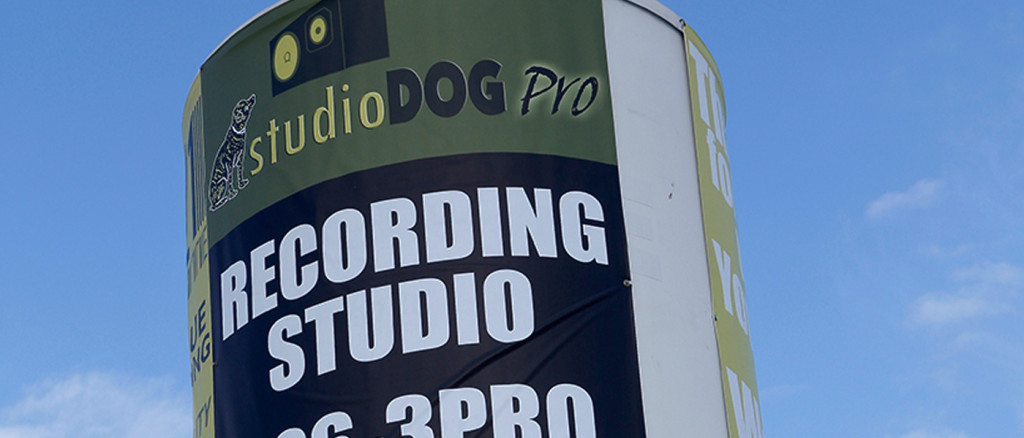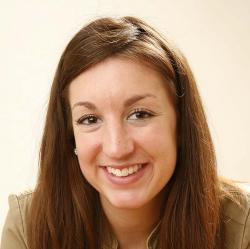When people think of a music studio opening its doors, they might conjure stereotyped images of the glamorous life: musicians wheeling in and out, expensive gear, hit records, shiny cars. The reality is that recording is a tedious process, not defined by the gear rolling in and out, but rather the talent and creativity of those who have their hands on whatever equipment is at hand: expensive, modified or otherwise.
StudioDog Pro, 621 W. Fayette St., is about far more than either of those scenarios. The new studio has been built from repurposed materials and is housed in an old warehouse, similar in many ways to the legendary Sound City in Los Angeles. And there is an all-star trio of multitalented Syracuse scene-changers running the facility.
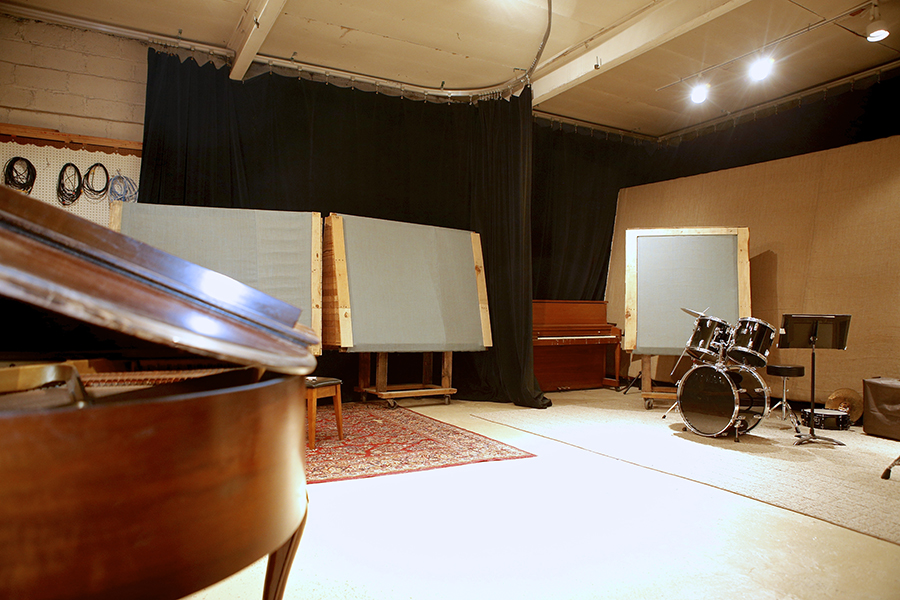
Yet StudioDog Pro also boasts an educational focus and a distinct vibe, thanks to the time and care its staffers have put into creating the facility. It’s raw, it’s real and it’s already making an impact.
“We’ve always seen that our musical goals as producers and engineers were really similar,” says Isaac Rothwell, engineer and producer. Rothwell works with co-owners Langston Masingale, who handles chief engineer and lead producer duties, and assistant engineer and producer Peter Cappelli. “Our values in the music and our goals for the area have always been really similar, a strong history in involving youth education as well.”
Masingale notes, “We’ve always had a desire to push this educational component and really fortify it in the community because that’s how I got into music. I wasn’t in the greatest of neighborhoods and music was my way out of that. I didn’t want to just start receiving money to record musicians because that’s not all it was to me. This is just my gift. I wanted to share that with people so it could inspire others to pursue that avenue.”
Masingale and Rothwell first crossed paths during college. Masingale laughs as he recalls Rothwell as a huge fan of DMX back in the day–and also someone he didn’t take seriously until he saw his studio.
“I saw a lot of potential in Isaac, but he was doing things with standard equipment and approaches, doing what you’re supposed to do if you go into the educational complex,” Masingale says. “They teach you things a certain way. The thing is, I’m an old soul. I didn’t say it, but I thought in my head, ‘You don’t know shit!’ I was an arrogant son of a bitch.”
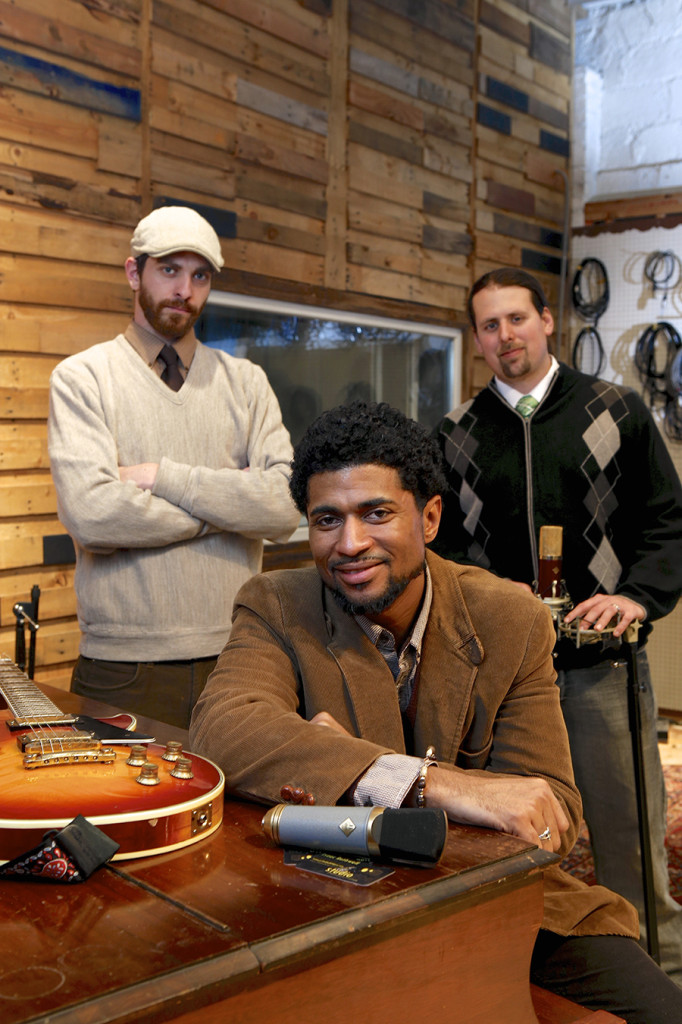
Rothwell joins in with, “I could tell he thought that! Until he saw that I built an entire studio that looked good and was done with good principles. I wanted to work with Langston because he reminded me of the last guy I worked with and learned a lot from at SUNY Purchase, Phil Moffa.”
Masingale got his first studio taste when he was 16. A family member with a studio recognized his potential and let him in on a session–but he demanded that Masingale earn his way to stay. “He gave me a 24-track, two-inch tape machine manual and said, ‘You read that, you understand that, we’ll talk.’ I was like, ‘Whatever.’” Masingale made it through the manual with enough understanding to earn his keep.
He started working with indie rock bands and learned about the technicalities of recording and producing, as well as dealing with different personalities and getting organized when faced with multiple projects. That led to recording stints including New York City and Philadelphia, where he started his own microphone company, JJ Audio Mics USA, in 2009.
While working at Philadelphia’s Grooveyard Recording Studio from 2009 to 2011 with the world-famous Bobby Eli, Masingale gained experience with the best in the business. “I would hop on the trolley or walk to work and go record famous people,” Masingale recalls. “I worked with Ronnie Spector and these old-school doo-wop groups and shit. It was crazy.”
Meanwhile, Rothwell was studying engineering and physics at Le Moyne College, but abruptly switched paths and attended Herkimer Community College. He then enrolled at SUNY Purchase’s Conservatory of Music and its music production and technology program. He came back to Central New York in 2007, then finished a general music degree at SUNY Oswego and plugged into the Near West Side Initiative.
“My journey was crazy, to say the least,” Rothwell says. “But it immersed me, gave me the passion of what I want to do with it. Experience helped me a lot. Langston had the stuff I was missing, the hands-on approach.”
Masingale and Cappelli share another musical connection: In 2004 they started The Goonies, a funk/hip-hop band known in the Syracuse scene for their unique brand of rhymes and energetic live shows. Cappelli is soft-spoken, but leaves most of his talking to his hands, especially on guitar and bass. Cappelli continues as a Goonie, as well as performing with The Super Delinquents.
Although Cappelli is currently the ropes from Rothwell and Masingale, he’s already contributing immensely to the studio through his skills, both on instruments and the equipment behind them. “I pull in the functional knowledge,” he says. “I suck that in.”
Masingale says about Cappelli, “He’s not a typical Syracuse musician who plays guitar in bars and wears an ugly shirt. This dude had walls of amps, old tube amps and shit. Now, we have custom guitar amps completely through his connections. People come in with amps and think they’re good, but they’re Guitar Center amps. And then you’re like, well, I’ve got a 10-watt that has two 606s from 1965, Drake transformers and everything else. It’s hand-wired point to point and made out of a clock radio. We call it the Franken Amp: You turn that on and the person’s like, ‘Well, you can put my amp away because I’m gonna use that for the whole LP.’ That came from him {Cappelli} getting turned onto that world.”
Cappelli also works as a session musician, adding guitar and bass when necessary. It means he must learn whole new styles, such as Bachata music, as the studio welcomes all genre types through their doors.
The Basement Tapes
In 2011, Masingale started working with Rothwell out of his studio basement, which they soon realized couldn’t handle the customer traffic. “It wasn’t just necessarily that being in the family environment in a converted basement studio was the thing, it was the fact that the studio was becoming popular,” Masingale explains. “It was like Grand Central Station, interrupting baby nap time and things like that. We started getting projects that required a commercial setting and we thought, well, we know the desire and demand is there.”
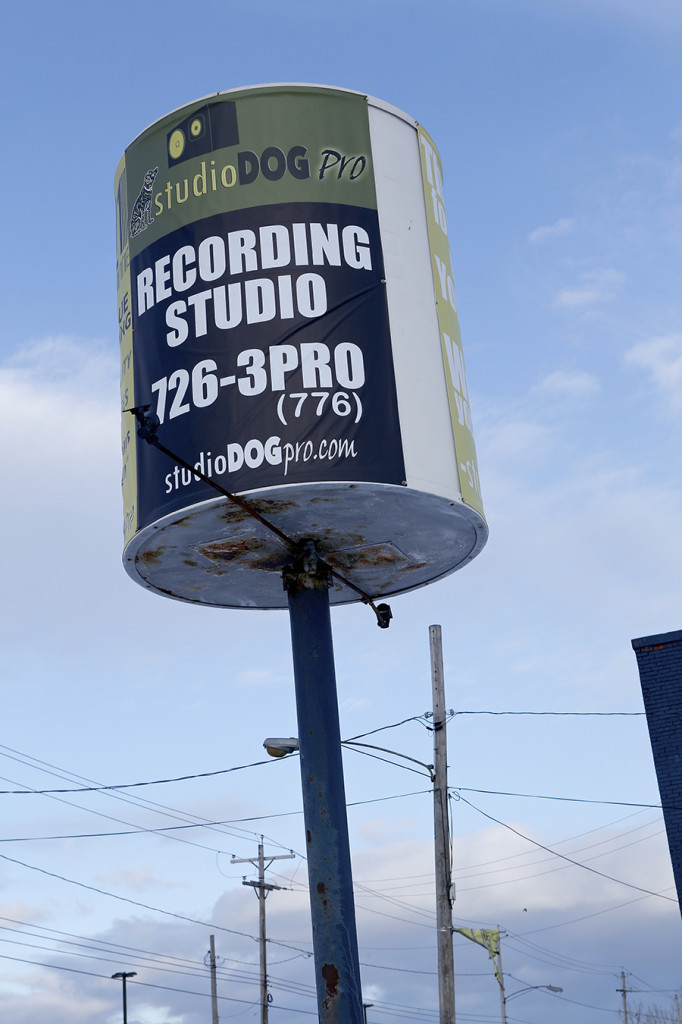
They found their new space on West Fayette Street at a former warehouse (it once sold paint, as indicated by the roadside sign of a paint can that now carries the StudioDog logo), which they acquired in June 2013. The business is one of three recording ventures in the immediate area, which includes SubCat Studios, 219 S. West St., and MoleTrax Studio on 621 Marcellus St.
Rothwell approached Habitat for Humanity about re-purposed materials (he and Masingale now work there part time) and the results included a beautiful window frame from a law firm for the studio view from the control room, a stand from an old model house–used at the New York State Fair by National Grid–that is now part of the mixing console, and other materials that could combine form and function in the studio.
Much of the recording equipment was bought cheap, then modified and put to use, making for completely unique-to-StudioDog recording materials. The result has been great-sounding recordings and an interest in using the studio for even more than just that side of the process.
“People don’t just want to record here,” Cappelli says. “They want to shoot videos here now. We’ve had three people just shoot video.”
The handmade feel and multifaceted team approach has also attracted genres of all types, spanning death metal to folk. “This studio has a very diverse client base,” Masingale says. “I’m talking like, two speak Swahili when they do their music, a lot are in Spanish, a lot of soul music, death metal, folk, regular rock, blues. A lot of people think that because The Goonies are in this studio that it’s a hip-hop studio. No, this is a studio that probably does one of the biggest varieties of music in the city.”
Since its open house on Nov. 22 (they started letting bands in a few weeks prior), the studio has worked with acts including The Shakedown, Mountains and Valleys, Kilter and Obsessed with Tragedy.
But at the end of the day, the larger dream of this studio is to show youth (and adults) of the community that they, too, can work their way up the ranks, make music, produce others and create art where they live. Rothwell, Masingale and Cappelli have already started recruitment for programs for kids at local schools and have done summits, workshops and other outreach events to advertise that their doors are open.
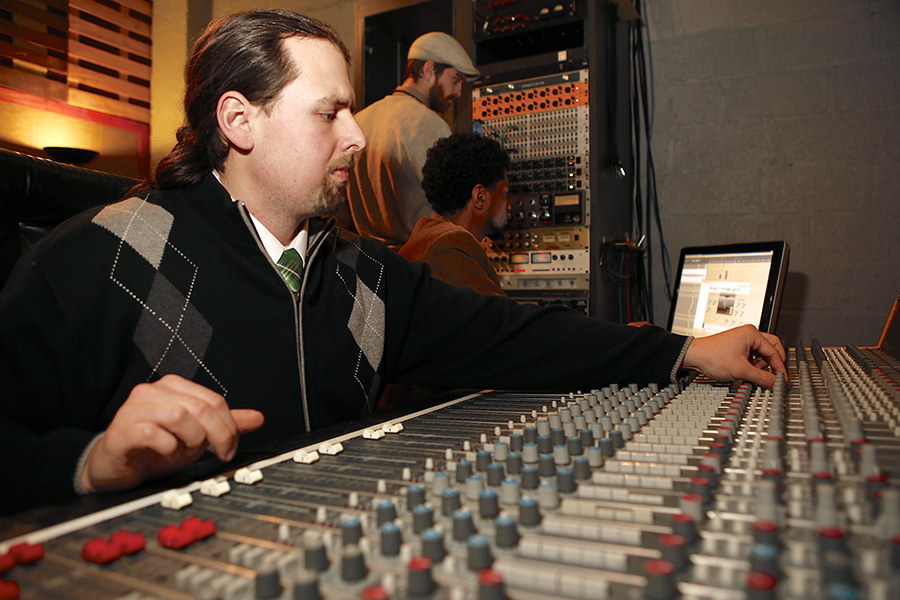
“We want to develop over time and take kids with an interest in arts and music, whether it be as a rapper, drummer, artist or wanting to work at a TV station, and say, these are some ways you gotta do it,” Rothwell says. “It sucks you’re in high school and you have to sit in math class, but it will pay down the road. We want to let them know that there are some real careers behind this and eventually find some offshoot businesses where these kids in our programs can get summer employment or internships and eventually some will want to give permanent employment. Ultimately, we’re teaching life skills.”
Masingale describes a scene where people feel comfortable and inspired when they come to the studio, walking out while bands are walking in to make records. It can be a place where kids and professionals coexist and where people of all ages, types, genres and backgrounds can work together in a variety of formats, some still undiscovered. The goals are real, attainable and already in the works, thanks to the drive the team shows. They’re not waiting for others to pave the way: They’re pulling out the asphalt.
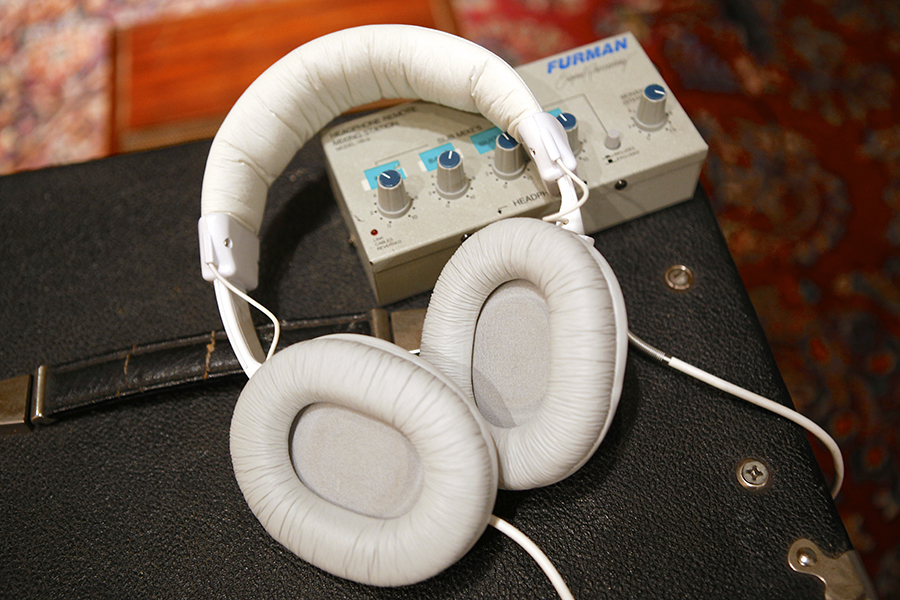
“We can pack classrooms with these programs,” Masingale says. “Kids want to do this. It said in a survey last year that a majority of parents in this district want arts and music to return to the schools and they haven’t. Here’s an opportunity for somebody. We can only fit so many people at one time, but it’s not just about us. One of the things I always share with people is that you can never be successful alone. It’s not just about I need to do it or we need to do it–it might show somebody else. Maybe all the studios around here can open their doors to the community a little bit more. Talk about grassroots: This is it.”
For more information, call 726-3PRO or CLICK HERE
For more stories like ‘StudioDog Pro wants to bring the music community together’ – CLICK HERE FOR MUSIC
To enter your listing in the SOUNDS Directory, Click the pic below:


